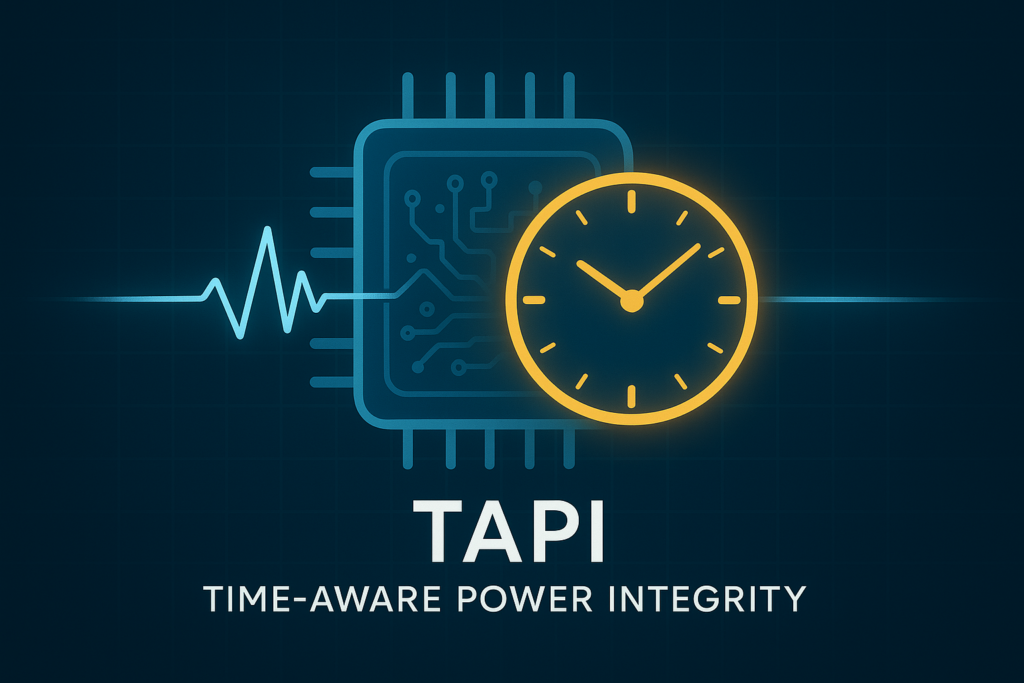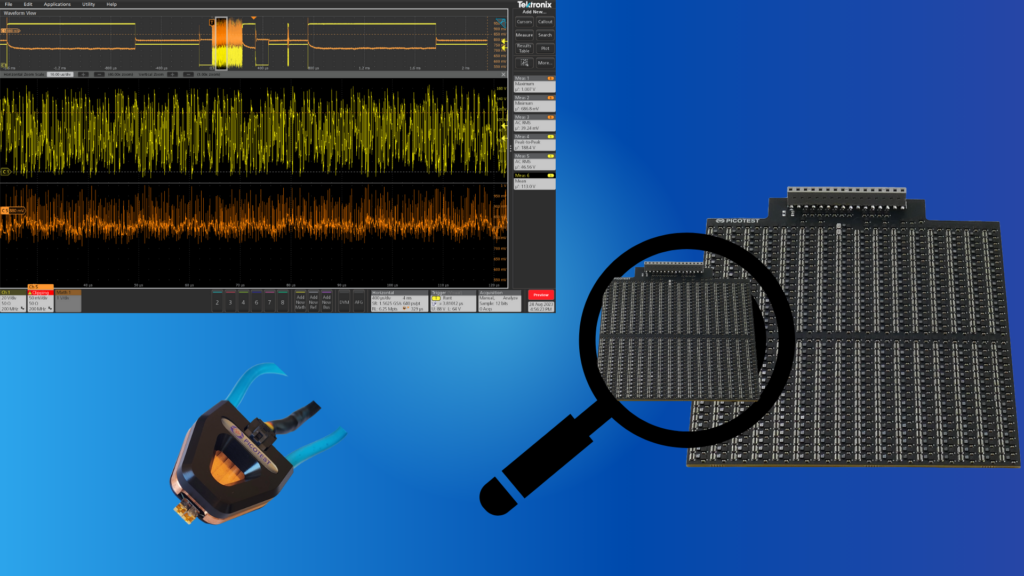Featured Insights
Picotest and ignal Edge Solutions address TAPI concerns.
You may not have heard of TAPI, but you will. By necessity, testing extreme dynamic transient conditions is becoming more and more common for…
The Challenge of Measuring a 40 µohm, 2000 Amp PDN With a 2-Port Probe: How Much CMRR is Needed?
Benjamin Dannan, Signal Edge Solutions and Steve Sandler, Picotest Published in Signal Integrity Journal A two-part series of posts, firstly determining how much CMRR is needed…
Picotest Releases Line of High-Speed Transient Load Steppers for VRM and PDN Validation
In a major technological leap, Picotest, maker of custom test equipment for power integrity and power systems testing, has released a series of very…
-
Automate VRM Testing with Python & SCPI: A Guide for Lab Measurements
Automating VRM Testing Just Got Smarter Manually measuring voltage regulator modules (VRMs) in the lab? That’s yesterday’s workflow. Signal Edge Solutions breaks down how…
-
Calibration, Embedding & De-Embedding – Achieving Highly Accurate Impedance Results
OMICRON Lab hosted their 14th Power Analysis & Design Symposium – April 9th, 2025 Watch Steve Sandler discussing how to achieve Highly Accurate Impedance…
-
Assessing Point-Of-Load Regulators Using Non-Invasive Techniques
Evaluating the stability of a Point-Of-Load (“POL”) regulator can be performed using both traditional Bode plot and output impedance measurement techniques. Measuring output impedance…
-
FAQ #22: So how does this non-invasive measurement relate to phase margin and gain margin?
It doesn’t, at least not directly. Since stability is an assessment of the proximity of the gain vector to the singular unstable point, (1,0)…
-
New Injector Supports Testing of POLs
High Fidelity POL Testing with the J2112A The J2112A: Faster, Non-Invasive, and High Fidelity POL Step Load Testing Testing the step load performance of…
-
FAQ #21: How do you use the Picotest injectors and the Agilent analyzer to measure output impedance and/or non-invasive step loading?
How do you use the Picotest injectors and the Agilent analyzer to measure output impedance and/or non-invasive step loading? How do you use the…
-
Making Ripple Measurements
Making ripple measurements has traditionally been using an oscilloscope. For a number of technical reasons, an oscilloscope, in general, is not necessarily the best…
-
Sharpen Rising and Falling Edges
Wherever you find a digital control signal, you find sharp rising and falling edges that need characterization. These edges occur on switching power supplies…
-
Exploring Bandwidth, Gain Margin and Phase Margin in Non-Invasive Measurement
SummaryAmong the most frequently asked questions regarding non-invasive stability measurement are “How do I determine the bandwidth, phase margin and gain margin from the…
-
Use A Signal Analyzer To Measure Power Supply, Regulator, and Reference Noise
Noise from the power supply, linear regulators, and voltage references is a major contributor to the limitations of system performance, especially in instrumentation and…
-
Making Sense of Two-Wire Current-Sense Resistors
Four-wire sense resistors provide two power connections and two sense wires in order to make a precision measurement. Newer two-wire devices are available in…
-
Low Power And High Efficiency Can Degrade Performance Significantly
The general industry trend is to make electronic products more efficient and, in general, consume less energy. One of the major considerations is to…
-
Essential Test Adapters for Your Network / Impedance Analyzer
The network analyzer, sometimes referred to as a Frequency Response Analyzer (FRA) is a common piece of equipment in most of our labs today.…
-
Understanding the Data Sheet Key to Effective Circuit Design
Consider this first example excerpt from a datasheet; a plot of the output impedance of a voltage reference with and without a capacitor. Identifying…



